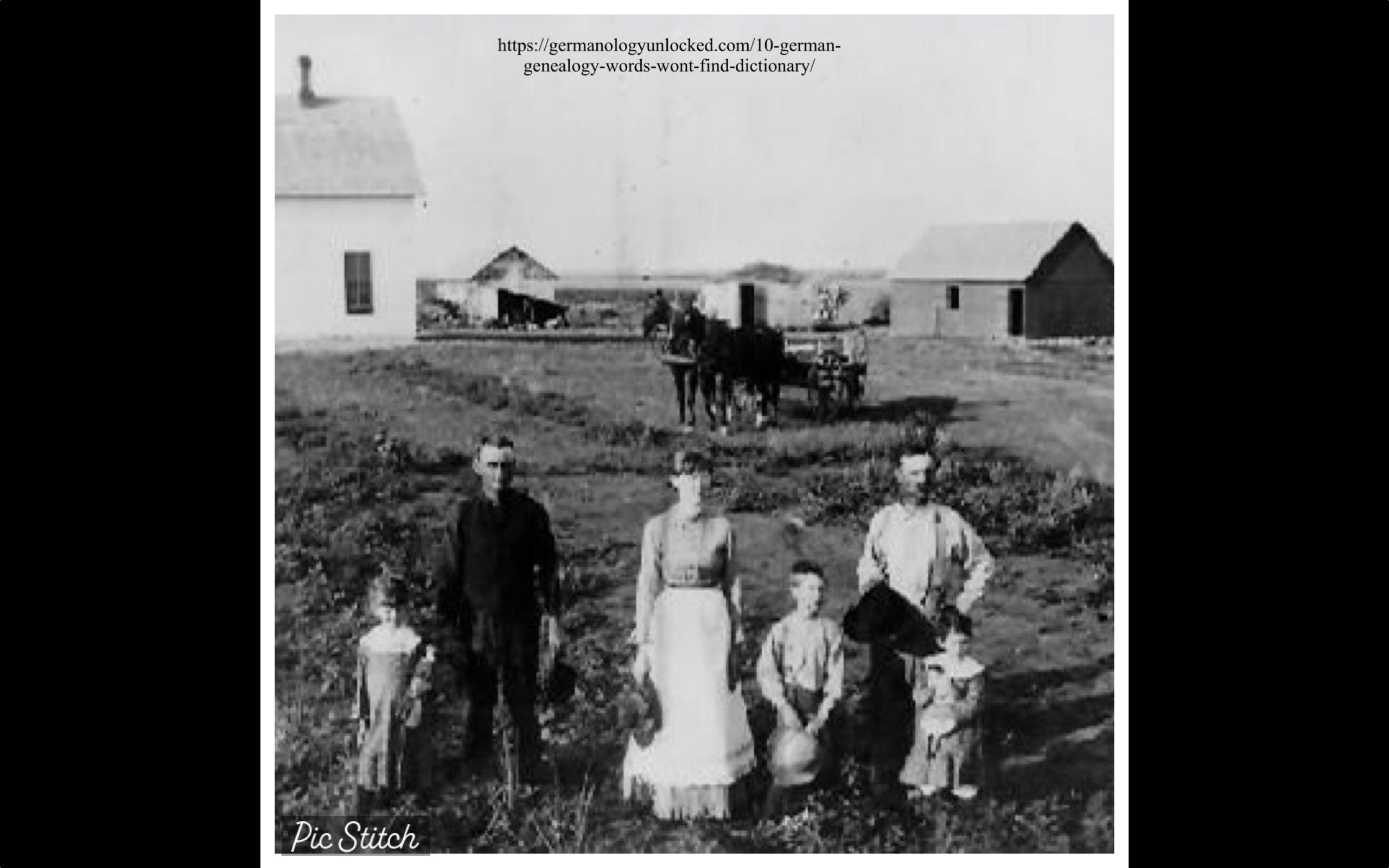One thing I have learned over the last few years is there are sometimes varying definitions for the same thing. Not only is that true for each country (that makes sense, right), but within a country each region or even each village could have their own definition or term. How confusing! But that is genealogy! Good thing there are people who have written about all these differences so you can figure out your family a little easier. I am going to be working on some of my German ancestors, and I figured I would learn a little about different words and classifications for farmers. While I will not cover them all I will focus on a few to start.
Two main groups to consider
There are two main groups of agricultural workers, the farmers with full privileges and duties in their farming community (Bauerschaft) and those farmers without privileges and duties. The full privileges and duties were:
- full rights to common areas based on farm size and assets
- owed district taxes and services to the manor based on farm size and assets
- and had a say in questions that came before the farm cooperative
Those without privileges and duties:
- had no (or few) rights to common areas
- some duties owed because they benefited from schools and churches
- and no say in questions that came before the farm cooperative
Next, farm classification is what determines the amount of taxes and duties owed. Once again each region may have their own way of doing this. Some used terms for fractions and others used terms denoted by a rough size. So, you may be able to find your ancestor’s place in the social structure from these records. The largest farms were considered full-sized farms and therefore may have voll in their title. Huf may also be seen. It is an old unit of land measurements. Bauer is farmer, so here are other words you would see for the different fractions; half farmer is Halbbauer; quarter is Viertelbauer; eighth is Achtelbauer. If you find the word Meier that will mean full farmer.
Taxes and duties associated with property size
Now, if you come across the word Kötter (cottager) that is a common word for a small farmer. Small was considered a small home which may have included a garden and sometimes a small amount of land for animals. This was not enough to support a family, so they had supplemental incomes. But, as always, you will need to investigate the area your ancestor is from to make sure this holds up for the area they were in.
While this seems like a lot to take in this is really just a good jumping off point. While dictionaries are usually the first place we go when we find words we do not know or understand, just keep in mind they may not be the best choice in all cases. Find articles that people have written that have immersed themselves in the understanding of the area you are researching. While it may be time consuming it is also well worth understanding your ancestors and their lifestyles.
We can help
If you need any help finding your ancestors, just let us know.


